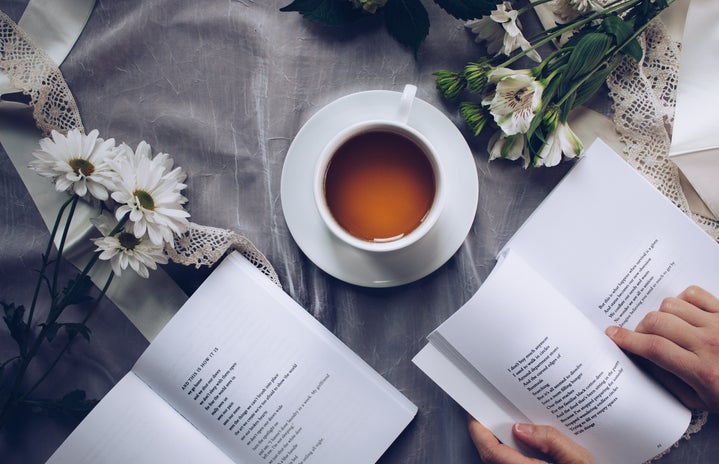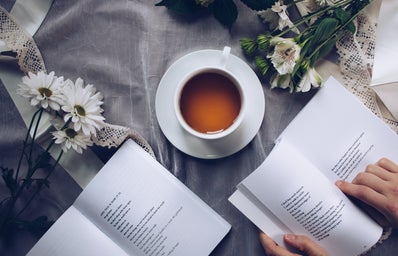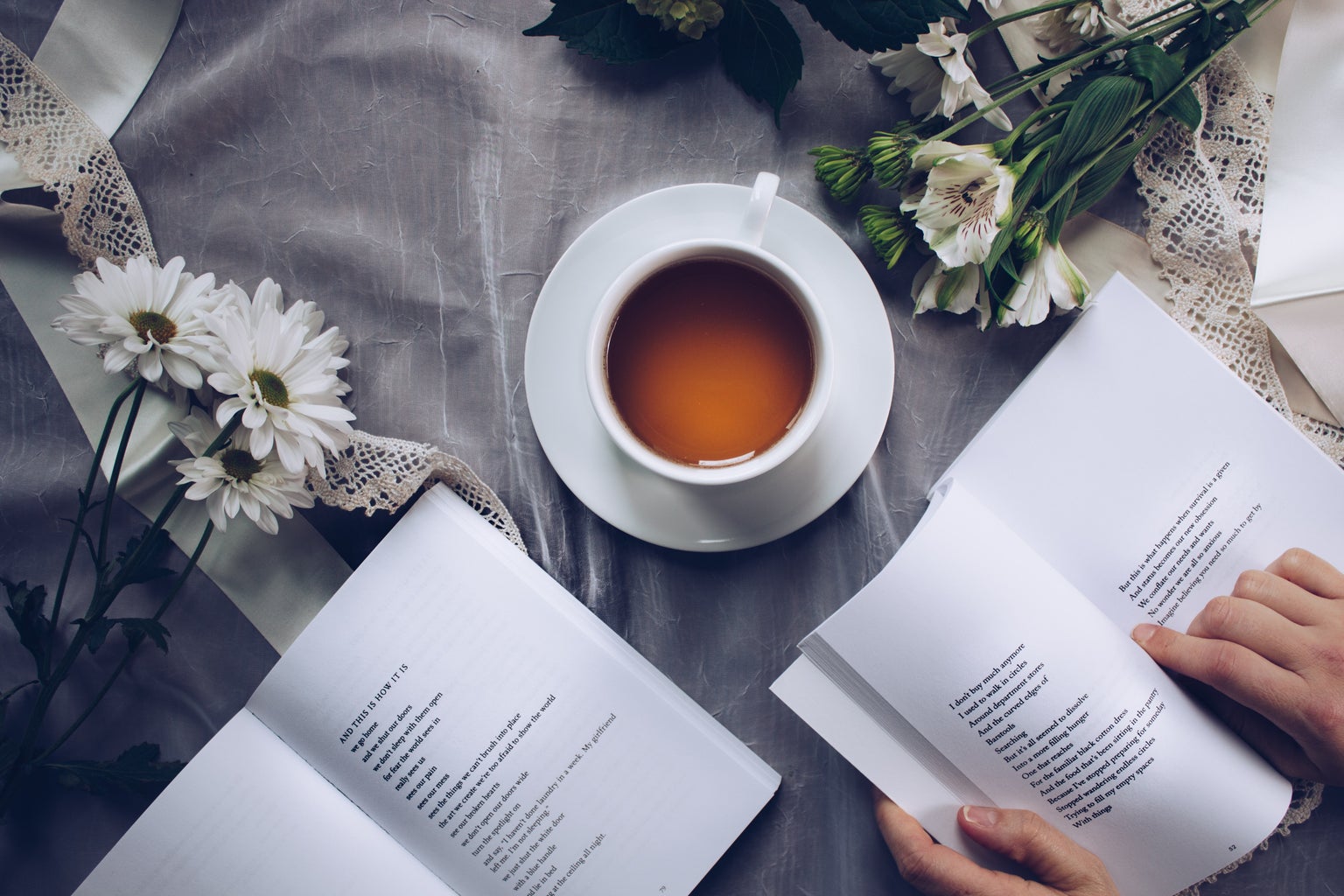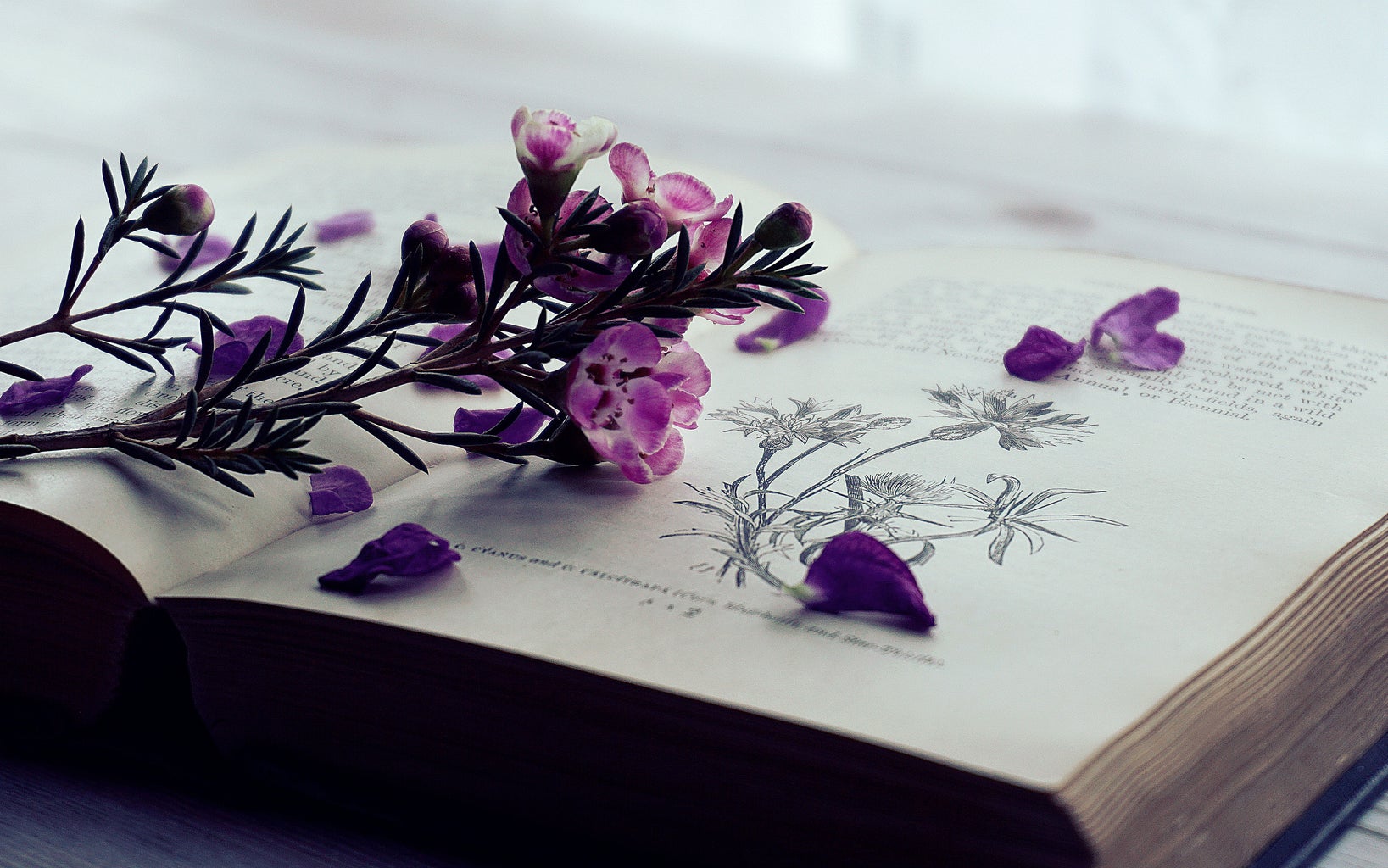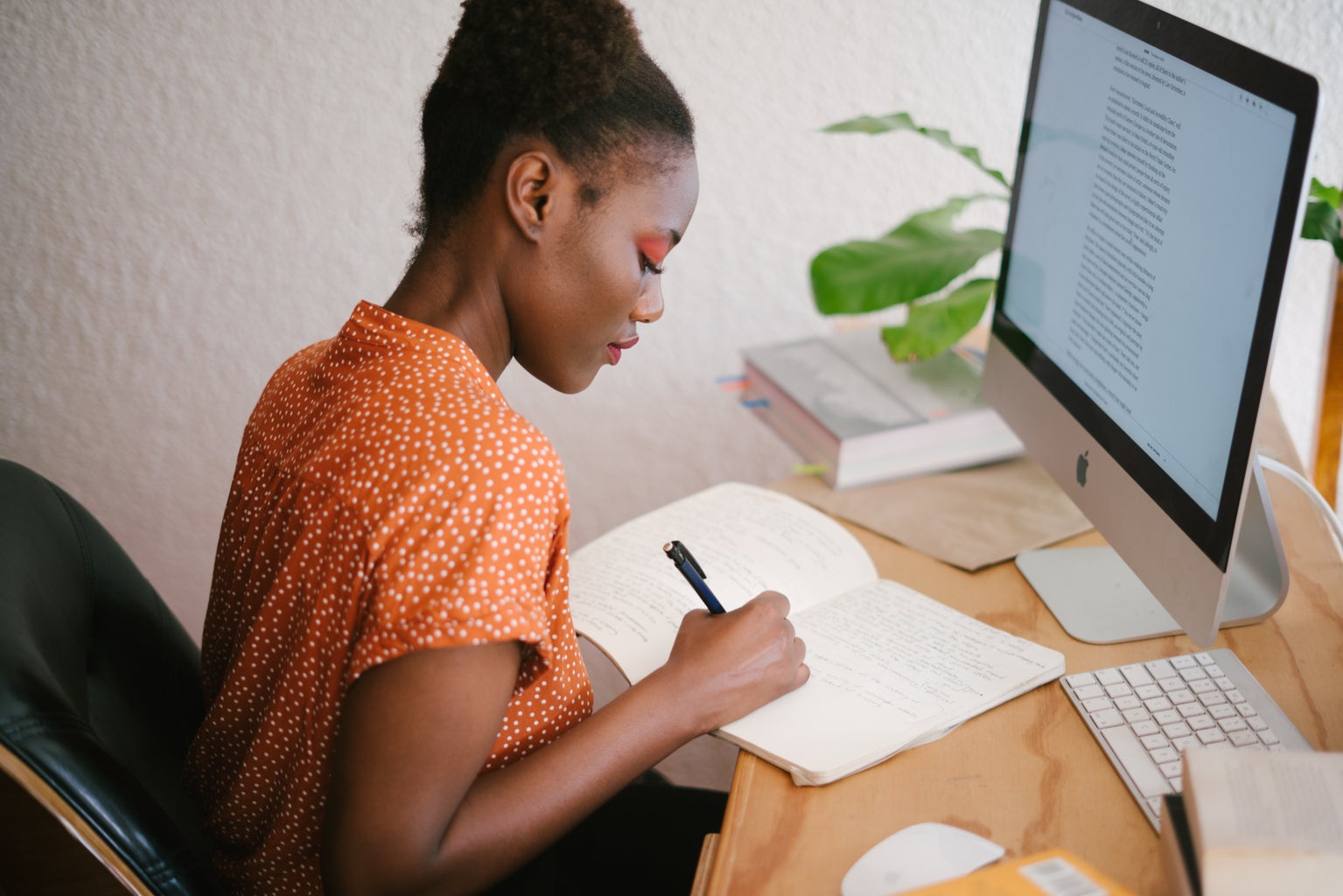I had a very love-hate relationship with poetry growing up. I remember dreading “poem in your pocket day” in middle school because we were instructed to share our favorite poem. The thought of pouring my heart out to the class made me cringe, so I went on Google and picked the shortest, most simplistic one I could find and held my breath the whole day. Once the school day ended, I crumpled up the little piece of paper and threw it in the trash. My inability to find poems I connected with made me resent any poetry unit I was forced to partake in school because, to me, poetry felt so lifeless and impersonal.
What wasn’t impersonal and lifeless to me? Music. I made the music I listened to my whole personality, and even my personal style fluctuated depending on which “phase” I was in. I found refuge in emo and pop-punk music, cementing my status as an emo kid for about four years of my life. Dissecting a song’s message was one of my favorite things to do, and the themes of the music I listened to were deep but not cryptic – I could connect with music, but never with poetry. Ew, I would think, I don’t care about what an old, rich white man from 300 years ago has to say in his sonnet – that was all I was exposed to for a long time.
All of the sentimentality and beauty of poetry were dulled down by teachers who would make us operationally pick them apart until words stopped sounding like words. We were taught the more sophisticated the poem, the better. That isn’t so much the fault of my former teachers as it is the American education system as a whole, but that’s a can of worms I’m not going to open.
I’ve noticed that, if directed to read something in a rigid time frame, it sucks all the passion we may initially have right out of it. That was my relationship with poetry as I entered high school; I got so into the habit of reading poetry with an end goal of a letter grade that I resented it.
Then, as a junior in high school, I found a video on TikTok that ignited my love for poetry: Olivia Gatwood’s “Manic Pixie Dream Girl.” It was one of her performances with @buttonpoetry, a slam poetry account giving platforms to different poets of all backgrounds and ages. As I listened to Gatwood speak, I wasn’t listening to her words for the sake of comprehension. I also wasn’t thinking about what I could annotate in the margins in hopes to get a pat on the back for a surface-level understanding – I felt like I myself was being understood.
Her poem discussed the exotic manic pixie dream-girl trope, a trope I was familiar with through media like Looking for Alaska and Scott Pilgrim VS The World. This described the type of girl in the movies that were mysterious and quirky, and her job was to usually teach the male main character something profound about himself – and then essentially disappear when he finds no need for her anymore. She connected this trope to the idea of being desired by men idealistically and not genuinely: someone likes the idea of you and how you complement them, but not you. Yeah, um, ouch. Everything about Gatwood’s language and tone in her performance enthralled me, and I spent hours scrolling through that poetry account and just crying my little eyes out.
I then hopped on the Olivia Gatwood train by buying her book called Life of the Party. Her poems centered around girlhood, violence, sexuality, and the glamorization of true crime. Some of my favorites from that book are “My Grandmother Asks Why I Don’t Trust Men”, “Murder of a Little Beauty”, “When I Say We Are All Teen Girls”, and “Girl”. She has the amazing ability to combine both complex imagery and casual free verse into something so cohesive, biting, and beautiful. She fostered my love for poetry in this way.
This leads me into my first point: There is no right way to “do” poetry.
It is equally powerful in all its different forms, and the most casually-written poems can be as meaningful and complex as Shakespearean sonnets. You don’t have to come prepared with an English degree or know Mary Shelley’s mom’s aunt’s dog’s name to enjoy it – if anyone tells you otherwise, they’re pretentious.
In addition to @buttonpoetry on TikTok, I started to look at poems on Pinterest. I truly did find some of my faves by searching up “sad poem” or “happy poem”. (It’s really that simple!) I was met with the work of well-known artists like Plath and Ada Limón, but also with work from random people all across the globe: text posts from teenagers on Tumblr (some of them are fire, lowkey), etchings on bathroom stalls, street art, and contributions in an anthology from all different kinds of artists. This allowed me to discover my niche, or what artists and poetic themes and styles I liked the most. I most frequently read poetry on Pinterest, and while others might prefer navigating anthologies or hard-cover books, I treat my poetry Pinterest board like my own personal bookshelf.
There’s also no right way to write poetry.
If you find yourself wanting to write poetry, I promise you don’t have to make a rubric for yourself before you do so. Write whatever you want, however, you want. Poems that are streams of consciousness can be just as impactful as meticulously-structured ones.
I’ve seen some amazing works of art on Pinterest with pages adorned in poetry, newspaper prints, drawings of flowers, fabric splotches, and little designs. My own journal is not nearly as impressive as what the Pinterest girls have cooked up, but I do love having a hard copy of my work, in addition to the works of other poets and artists that I use as inspiration. My journal is littered with streams of consciousness, half-started poems, a plethora of Jeff Buckley lyrics, and no artistic embellishments whatsoever; it’s just me and my mechanical pencil against the world.
I do have a fair share of poems locked up in my Notes app from those sleepless nights when I thought I was writing the best thing in the world – only to wake up and hate my work. This is 100% normal, so do not feel discouraged if this happens to you; just keep refining and creating until you’re satisfied. You’re still a poet even if you are not broadcasting your work.

If you do want to broadcast your work, know this:
Be super careful with which sites you choose to send your work to. Many contests or anthology sites are in fact scams, and submitting your work to an anthology could give a shady publishing company full ownership over your work – making it impossible for you to represent your own poem under your own name in the future. I am still navigating the legitimacy of some of these websites, so there isn’t much advice I can give you besides BE CAREFUL!
Thankfully, there are alternative ways to share your work with the world. It could be as simple as posting your poetry on your Instagram story or on TikTok. I posted some of my poems anonymously on TikTok, and you wouldn’t believe the clout I received from total strangers. It was such a validating experience to see that people were connecting to the experiences I had been refining into art for years.
If this is a little too intimidating for you, I understand. I recently discovered an app called Poetizer that allows you to post your work anonymously to a small community of supportive fellow poets. What I love about Poetizer is that people will respond to your poem within seconds of your posting. I would get instant validation and feedback from strangers, and it was such a good feeling. You also can make your own poetry book through Poetizer!
Sooooo… Live the poetry you cannot write! (As said by Oscar Wilde <3)
I hope this article mends your relationship with poetry, making it less of a headache and more like a fun and cute hobby for you to consider taking up. While it may seem like overkill, I want to reiterate that there is no right way to read, write, and appreciate poetry. Being able to explore your passions without worrying about whether or not you’re doing enough or doing it right is an empowering feeling, and even if you’re not a poet at heart, I hope you still heed that advice.
“Don’t bend; don’t water it down; don’t try to make it logical; don’t edit your own soul according to the fashion. Rather, follow your most intense obsessions mercilessly” ~ Franz Kafka
